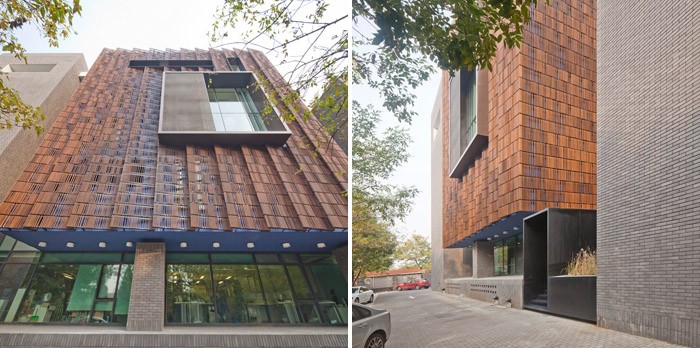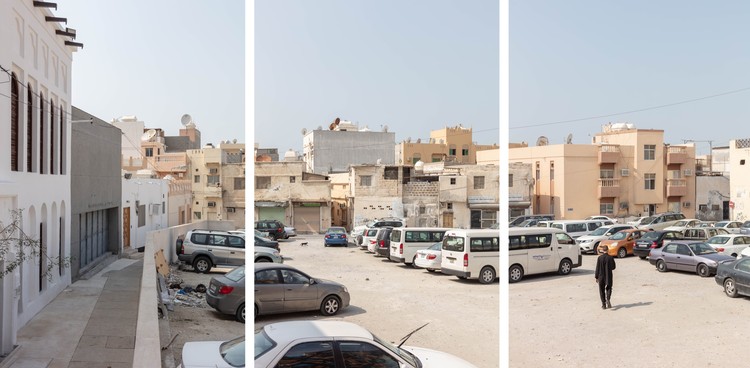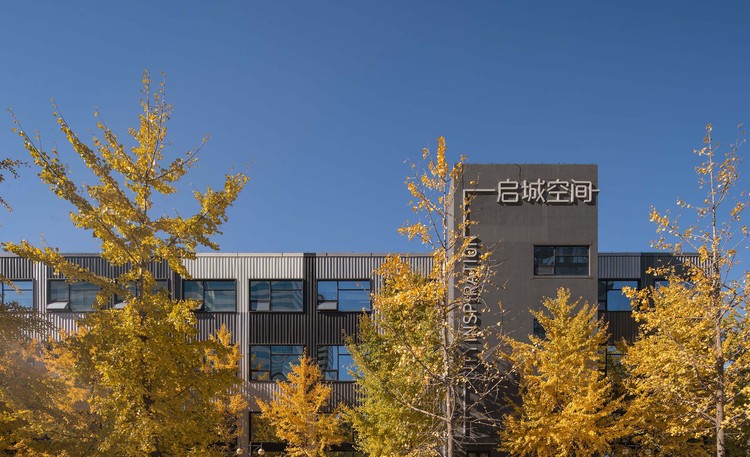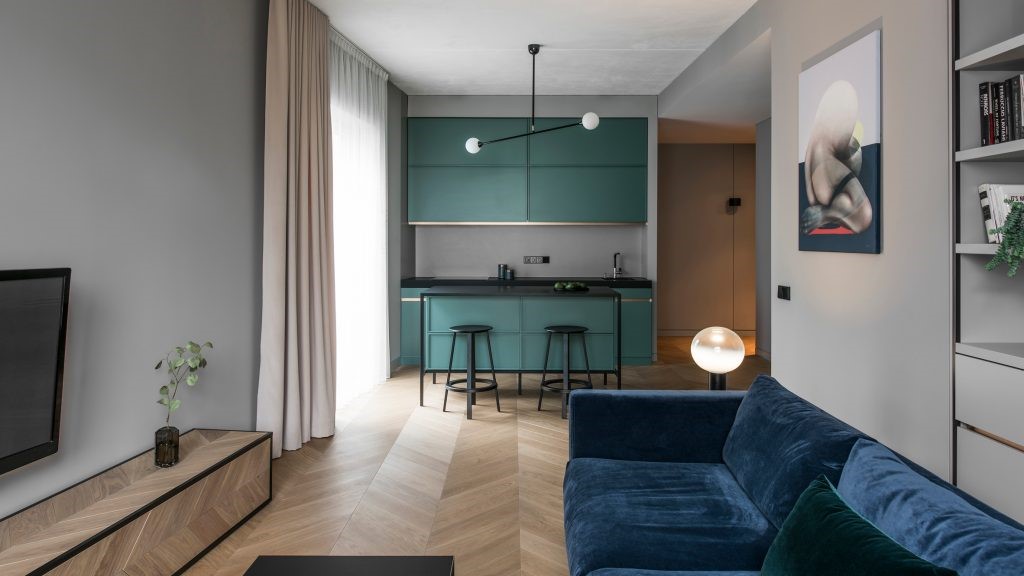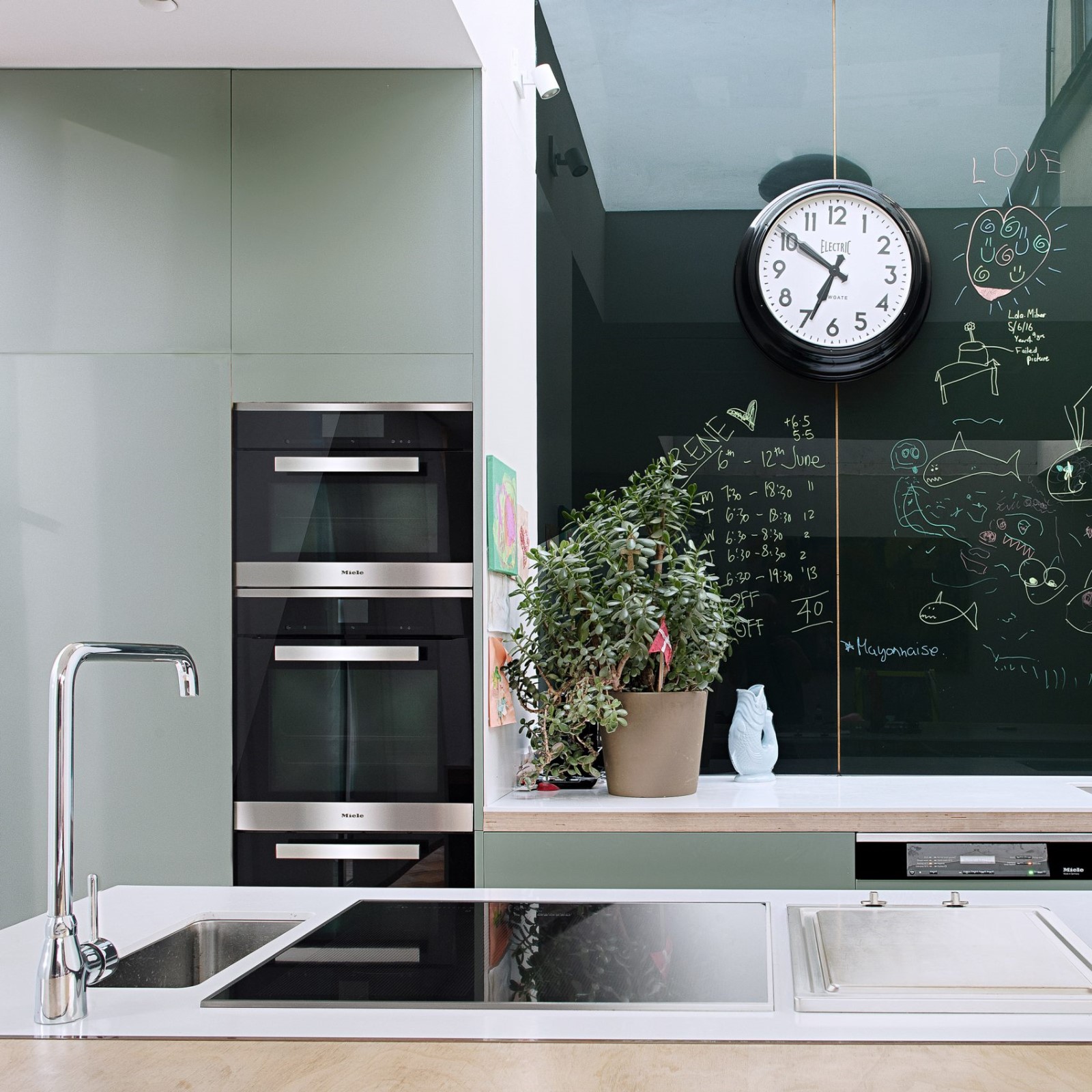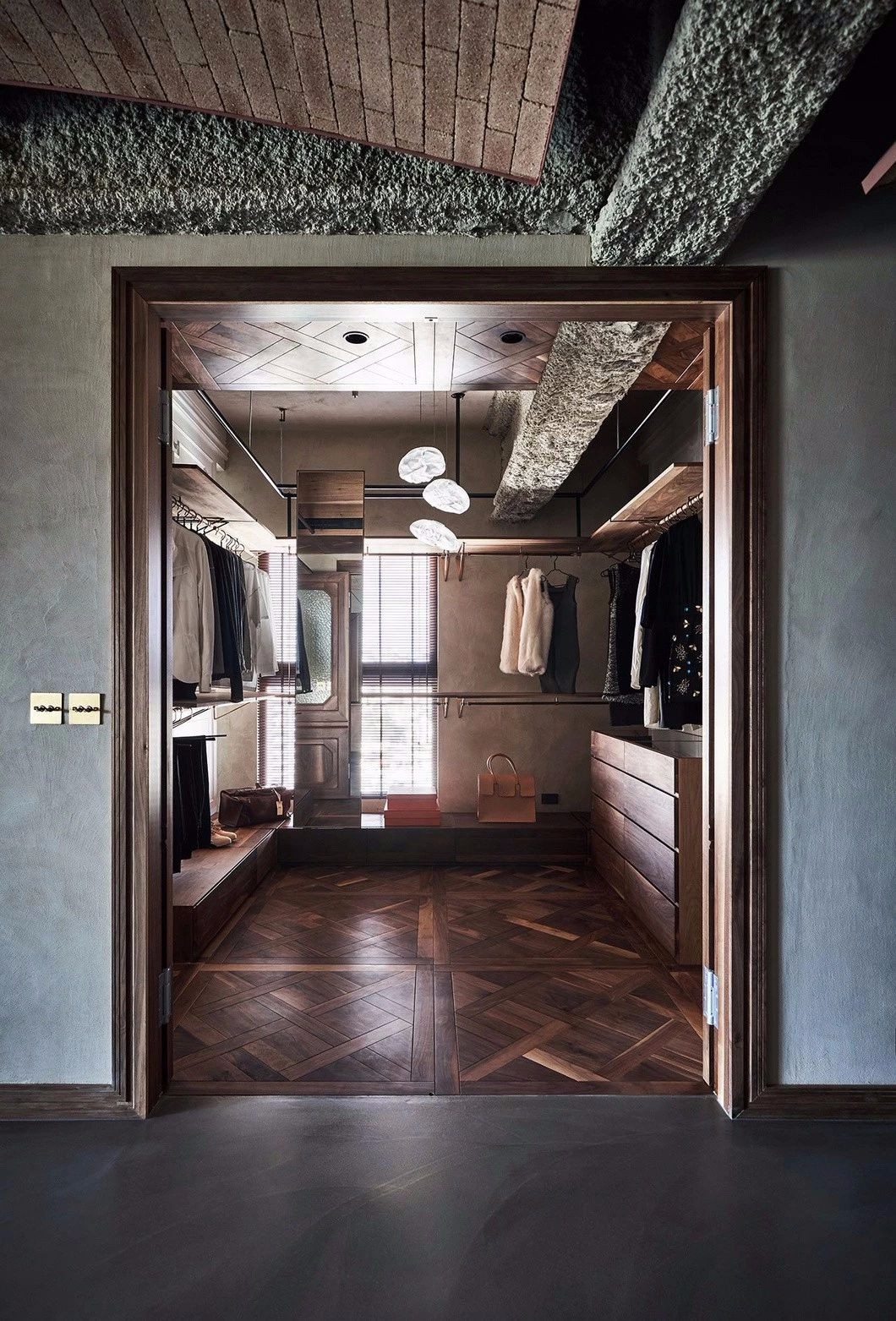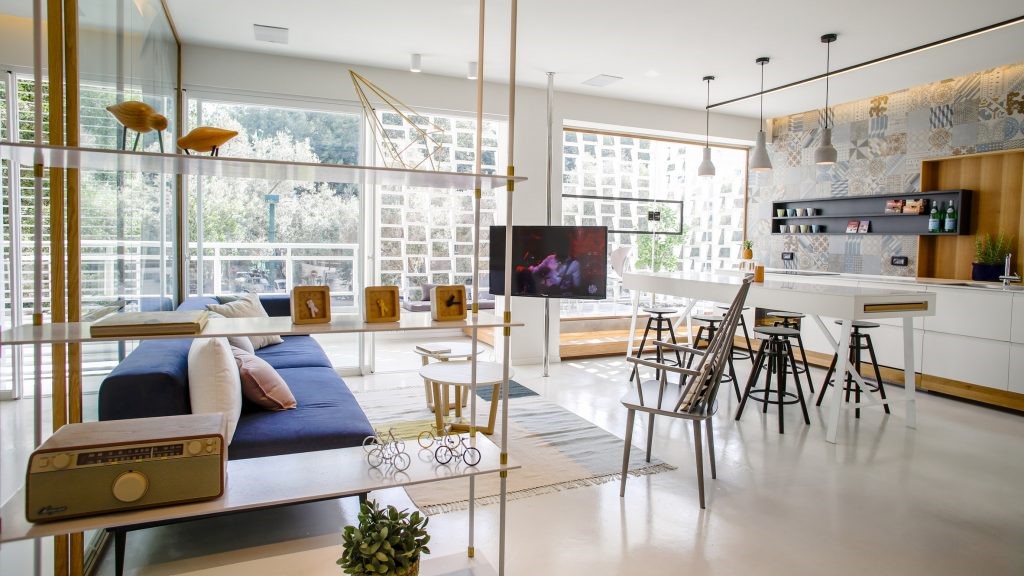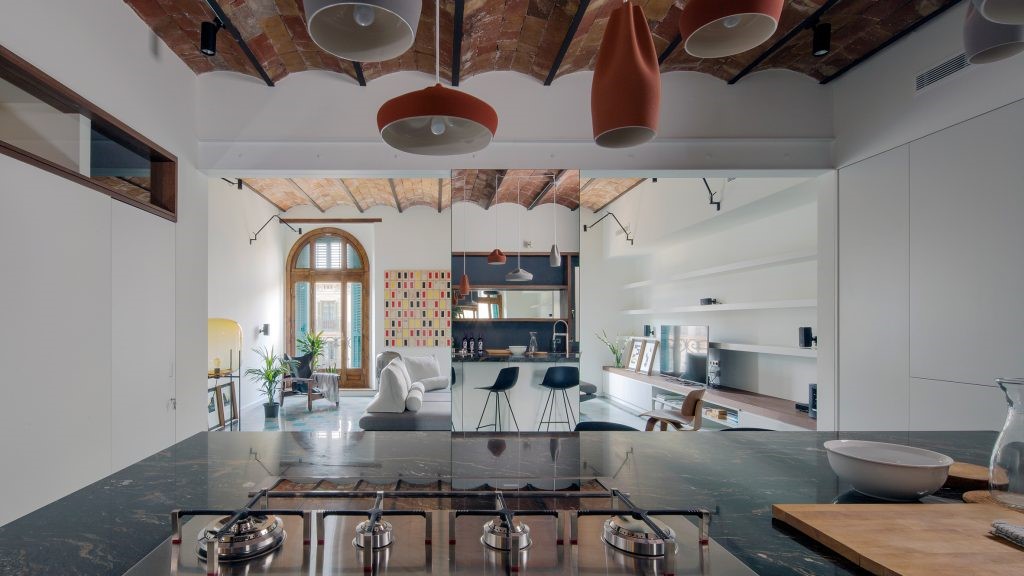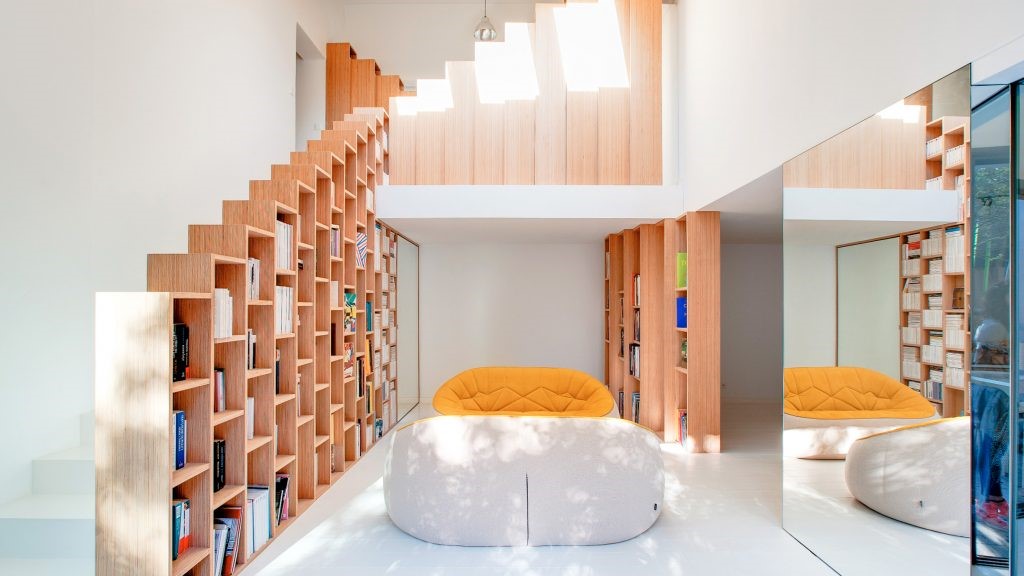Michigan Lake House Desai Chia Architecture + Environment Architects
2017-09-12 09:00
© Paul Warchol
(Paul Warchol)


架构师提供的文本描述。这座位于密西根州特拉弗斯城的环境建筑师(AOR)合作设计的房子坐落在树林边的悬崖上,俯瞰着密歇根湖,它是由三个相互抵消的结构组成的组合-“集合”结构包括起居室、厨房和一个有盖的“景观”座位平台;这两间“睡房”是主卧室套房和三间儿童卧室。就餐区的微风通道连接了这三种结构。
Text description provided by the architects. Perched on a woodland bluff overlooking Lake Michigan, this home, designed in collaboration with Environment Architects (AOR) of Traverse City, MI, is an assemblage of three offset structures that play off each other— the ‘gathering’ structure contains the living room, kitchen and a covered 'vista' seating terrace; the two 'sleeping' structures house the master bedroom suite and three children's bedrooms. A dining area breezeway connects all three structures.


屋顶景观有温和的起伏,跟随自然地形的移动,并有趣地参考附近渔村的乡土建筑。由此产生的节拍暴露木梁提供了层层不对称的拱顶贯穿整个内部。在房子的南端,一个20英尺的悬臂屋顶延伸到“景观”露台之上,提供了密西根湖和周围林地的保护的、通畅的景观。
The roofscape has gentle undulations that follow the movement of the natural terrain and make a playful reference to the vernacular architecture of nearby fishing villages. The resulting rhythm of exposed wood beams provides layers of asymmetrical vaults throughout the interiors. At the southern end of the house, a 20 foot cantilevered roof extends over the 'vista' terrace, providing a protected, unobstructed view of Lake Michigan and the surrounding woodlands.
© Paul Warchol
(Paul Warchol)


屋顶排水系统收集雨水,允许排水,并协助控制场地周围的侵蚀。这座住宅巧妙地将地热采暖与其设计结合在一起。对盛行风的研究决定了窗户的放置要利用自然通风:家里没有空调。
Scuppers of the roof collect rainwater, allow for drainage, and assist with erosion control around the site. The home elegantly integrates geothermal heating into its design. Studies of the prevailing winds determined window placement to take advantage of natural ventilation: there is no air-conditioning in the home.
© Paul Warchol
(Paul Warchol)


Floor Plan


© Paul Warchol
(Paul Warchol)


房子的外部覆盖着“寿司禁令”,这是一种传统的日本烧焦木材的方法,因此它具有抗腐烂和抗虫的功能。烧焦的纹理和深面成员的调制增强了阴影,当太阳升起和落下。
The exterior of the house is clad in ‘shou sugi ban,' a traditional Japanese method of charring wood so it becomes rot resistant and bug resistant. The charred texture and the modulation of deep facade members enhances the shadows across the facade as the sun rises and sets.
© Paul Warchol
(Paul Warchol)


我们从现场回收垂死的灰树,并将它们碾碎,用作室内橱柜、地板、天花板面板、装饰工作和整个房子的定制家具。房子的内部体现了土生土长的景观,这种景观曾经随着古老的生长灰烬而兴盛起来。
We reclaimed dying ash trees from the site and milled them down to be used as interior cabinetry, flooring, ceiling panels, trim work, and custom furniture throughout the house. The interiors of the house embody the indigenous landscape that once thrived with old growth ash.
© Paul Warchol
(Paul Warchol)


景观设计策略与房子的设计紧密相连。一个紧密的当地植被调色板突出景观,同时也管理雨水流失。当地的石材创造室外的座位区,通道和台阶。
Landscape design strategies were closely tied to the design of the house. A tight palette of native vegetation highlights views while also managing storm water run-off. Locally sourced stone creates outdoor seating areas, pathways, and steps.
© Paul Warchol
(Paul Warchol)






























Architects Desai Chia Architecture, Environment Architects
Location Leelanau County, United States
Lead Architects Arjun Desai, Katherine Chia
Area 4800.0 ft2
Project Year 2016
Photographs Paul Warchol
Category Houses
Manufacturers Loading...















